- Home
- Linda Lael Miller
The Yankee Widow
The Yankee Widow Read online
A richly layered saga is set against the backdrop of the Civil War
In The Yankee Widow, gifted storyteller Linda Lael Miller explores the complexities and heartbreak that families experienced as men took up arms to preserve the nation and defend their way of life.
Told in a smart, assured and compelling voice, this is the story of Caroline, the young wife and childhood sweetheart of Jacob, who together live on a farm raising their daughter, Rachel, just outside of Gettysburg. When Jacob joins the Northern army to do his duty and help save the Union, no one anticipates he will not return. Caroline gets news that he is wounded and has been taken to Washington, DC, with his regiment, and so she must find her way there and navigate the thousands of other wounded soldiers to find him.
Thus begins this novel that focuses on the strong women and men of both sides and both races who sacrificed so much and loved so well during this critical juncture in American history.
PRAISE FOR THE YANKEE WIDOW
“Marvelously depicted and every view is represented as Union and Confederate troops converge... as love takes root in blood-soaked ground.”
—Library Journal, Editor’s Pick
MORE PRAISE FOR LINDA LAEL MILLER
“Miller tugs at the heartstrings as few authors can.”
—Publishers Weekly
“Miller fills her stories with rich settings and characters so well-rounded, they cause a reader to feel as if they could be your best friend.”
—BookPage
“Memorable characters are the hallmark of Miller’s novels. Her down-home style of writing and delightful, heart-felt plots guarantee an enjoyable read.”
—Portland Book Review
“Linda Lael Miller’s novels have warmed the hearts of millions of readers the world over!”
—Fresh Fiction
“Miller has created unforgettable characters and woven a many-faceted yet coherent and lovingly told tale.”
—Booklist
Linda Lael Miller is a #1 New York Times and USA TODAY bestselling author of more than one hundred historical and contemporary novels. Long a passionate Civil War buff, Linda has studied the era avidly for nearly thirty years. She has read literally hundreds of books on the subject, explored numerous battlegrounds and made many visits to Gettysburg, Pennsylvania, where she has witnessed reenactments of the legendary clash between North and South. Linda explores that turbulent time in The Yankee Widow.
www.LindaLaelMiller.com
Also by Linda Lael Miller
A Snow Country Christmas
Part of the Bargain
Here and Then
Forever a Hero
The Heart of a Cowboy
Arizona Heat
Christmas in Mustang Creek
The 24 Days of Christmas
Always a Cowboy
Arizona Wild
Once a Rancher
The Cowboy Way
Montana Creeds: Tyler
Montana Creeds: Dylan
Sierra’s Homecoming
Montana Creeds: Logan
Used-to-Be Lovers
The Marriage Season
Big Sky Country
McKettricks of Texas: Austin
The Marriage Charm
McKettricks of Texas: Garrett
Snowflakes on the Sea
Mixed Messages
McKettricks of Texas: Tate
Deadly Deceptions
Deadly Gamble
The Marriage Pact
Linda Lael Miller
The Yankee Widow
In loving memory of Mary Ann Bleecker Readman, my cousin, my conscience and my cherished friend. I miss you every moment of every day.
Godspeed, Bleeck. I’ll see you down the trail a ways.
Contents
Chapter 1
Chapter 2
Chapter 3
Chapter 4
Chapter 5
Chapter 6
Chapter 7
Chapter 8
Chapter 9
Chapter 10
Chapter 11
Chapter 12
Chapter 13
Chapter 14
Chapter 15
Chapter 16
Chapter 17
Chapter 18
Chapter 19
Chapter 20
Chapter 21
Chapter 22
Chapter 23
Chapter 24
Chapter 25
Chapter 26
Chapter 27
Chapter 28
Chapter 29
Chapter 30
Chapter 31
Chapter 32
Chapter 33
Chapter 34
Chapter 35
Acknowledgments
Excerpt from The Flight Girls by Noelle Salazar
1
Chancellorsville, Virginia
May 3, 1863
Jacob
The first minié ball ripped into Corporal Jacob Hammond’s left hand, the second, his right knee, each strike leaving a ragged gash in its wake; another slashed through his right thigh an instant later, and then he lost count.
A coppery crimson mist rained down on Jacob as he bent double, then plunged, with what felt like a strange, protracted grace, toward the broken ground. On the way down, he noted the bent and broken grass, shimmering with fresh blood, the deep gouges left by cannon balls and boot heels and the lunging hooves of panicked horses.
A peculiar clarity overtook Jacob in those moments between life as he’d always known it and another way of being, already inevitable. The boundaries of his mind seemed to expand beyond skull and skin, rushing outward at a dizzying speed, hurtling in all directions, rising past the treetops, past the sky, past the far borders of the cosmos itself.
For an instant, he understood everything, every mystery, every false thing, every truth.
He felt no emotion, no joy or sorrow.
There was peace, though, and the sweet promise of oblivion.
Then, with a wrench so swift and so violent that it sickened his very soul, Jacob was back inside himself, a prisoner behind fractured bars of bone. The flash of extraordinary knowledge was gone, a fact that saddened Jacob more deeply than the likelihood of death, but some small portion of the experience remained, an ability to think without obstruction, to see his past as vividly as his present, to envision all that was around him, as if from a great height.
Blessedly, there was no pain, though he knew that would surely come, provided he remained alive long enough to receive it.
Something resembling bitter amusement overtook Jacob then; he realized that, unaccountably, he hadn’t expected to be struck down on this savage battlefield or any other. Never mind the unspeakable carnage he’d witnessed since his enlistment in Mr. Lincoln’s grand army; with the hubris of youth, he had believed himself invincible.
He had assumed that the men in blue fought on the side of righteousness, committed to the task of mending a sundered nation, restoring it to its former whole. For all its faults, the United States of America was the most promising nation ever to arise from the old order of kings and despots; even now, Jacob was convinced that, whatever the cost, it must not be allowed to fail.
He had been willing to pay that price, was willing still.
Why then was he shocked, nay affronted, to find that the bill had come due, in full, and that his own blood and breath, his very substance, was the currency required?
Beca
use, he thought, shame washing over him, he had been willing to die only in theory. Out of vanity or ignorance or pure naivety, he had somehow, without being aware of it, declared himself exempt.
Well, there it was. Jacob Hammond, husband of Caroline, father of Rachel, son and grandson and great-grandson of sturdy, high-minded folk, present owner of a modest but fertile farm a few miles south of the small but industrious township of Gettysburg, Pennsylvania, was no more vital to the noble pursuit of lasting justice for all than any other man was. In any larger scheme, neither his life nor his death would truly matter.
He knew his wounds were grievous, that a quick death was the most merciful fate he could hope for, and still he wanted so much to live, to return to his beloved wife, to his child, to the modest but thriving farm that shone in his memory, fairer than heaven itself.
The sacrifice was terrible, unspeakably so.
Was it worthwhile?
Jacob pondered that question, decided that, for him, it was.
The country had splintered, bone and blood, perhaps never to be mended. It was far from the ideal set forth by those bold intellects who had gathered in Philadelphia back in ’76, in a blaze of fractious brilliance.
Somehow, in the sweltering heat of a Pennsylvania summer, and yet no doubt cooler than their collective temperaments—out of dissent, out of greed and ill humor and stubbornness and all manner of other mortal failings—these remarkable men had forged a philosophy, a glorious vision of what a nation, a people, could become.
To Jacob, bleeding into the ground, in the midst of an endless war, that goal seemed more distant than ever, hopeless, even impossible.
And still, had he been able, he would have fought on, died not just once but a thousand times, not for the country as it was, but for the noble, sacred objective upon which it had been founded—liberty and justice for all.
Whatever the cost, the Union must hold together.
So much hung in the balance, so very much. Not only the hope and valor of those who had gone before, but the freedom, perhaps the very existence, of those yet to be born.
In solidarity, the United States could be a force for good in a hungry, desperate world. Torn asunder, it would be ineffectual, two bickering factions, bound to divide into still smaller and weaker fragments over time, too busy posturing and rattling sabers to meet the demands of a fragile future or to stand in the way of new tyrannies, certain to arise.
We hold these truths to be self-evident, that all men are created equal...
That belief, inspiring as it was, had chafed the consciences of thinking people since it flowed from the nib of Thomas Jefferson’s pen, as well it should have.
Like many of his contemporaries, the great man himself had kept slaves.
The inherent contradiction could not have escaped a mind as luminous as Jefferson’s, nor could the subtle difference in phrasing as he wrote those momentous words. He had not written that some men were created equal, but that all men were.
Strenuous opposition to the indefensible institution of slavery had been raised, of course, but in the end, expediency prevailed. Representatives of the Southern colonies, with their vast fields of cotton and other valuable crops, would face certain ruin without their millions of unpaid laborers. They had refused to join in the rebellion against Great Britain if slavery was outlawed.
Since the effort would surely fail without them, the concession had been made.
But what was the value of freedom if it remained the province of white men while excluding all others?
Alas, the question was too big for a man in the process of dying, alone and far from home.
There was nothing to be done, save letting go. In the deepest recesses of his heart, in that calm place beyond fear and pain and fury, Jacob prayed that the will of God be done, in this matter of countries and wars.
Then, with that petition made, he raised another, more selfish one. Watch over my beloved wife, our little daughter, and Enoch, our trusted friend. Keep them all safe and well.
The request was simple, one of millions like it, no doubt, rising to the ears of the Creator on wings of desperation and sorrow, and there was no Road-to-Damascus moment for Jacob, just the ground-shaking roar of battle all around. But even in the midst of thundering cannon, the sharp reports of carbines and the fiery blast of muskets, the clanking of swords and the shrill shrieks of men and horses, he found a certain consolation.
A whisper of hope. Perhaps he’d been heard.
He began to drift then, back and forth between darkness and light, fear and oblivion. When he surfaced, the pain was waiting, like a specter hovering over him, ready to descend, settle upon him, crush him beneath its weight.
Consequently, Jacob again took refuge deep inside, where it could not yet reach.
Hours passed, perhaps days; he had no way of knowing.
Eventually, because life is persistent even in the face of hopelessness and unrelenting agony, the hiding place within became less accessible. During those intervals, pain played with him, like a cat with a mouse. Smoke burned his eyes, which he couldn’t close; it climbed, stinging, into his nostrils, chafed his throat raw. He was thirsty, so thirsty. He felt as dry as last year’s corn husks, imagining his life’s blood seeping, however slowly, into the ravaged earth.
In order to bear his suffering, Jacob thought about home, conjured up vivid images of Caroline, quietly pretty, more prone to laughter than to tears, courageous as any man he’d ever known. She loved him, he knew that, and his heart rested safely with her. She had always accepted his attentions in the marriage bed with good-humored acquiescence, though perhaps not with a passion to equal his own, and while he told himself this was the way of a good woman, he sometimes wondered if, to Caroline, lovemaking was simply another wifely chore. Yet another duty to perform, after a day of washing and ironing, cooking and sewing, tending the vegetable garden behind the kitchen house and picking apples and pears, apricots and peaches in the orchards when the fruit ripened.
Jacob was not the sort of husband who took his wife’s efforts for granted. Whenever possible, he had lent her a willing hand, little concerned with what constituted “women’s work”; he hadn’t been above changing a diaper, gathering eggs or hanging out the wash.
No, work was work, whether it fell to a man or a woman to do it. As a farmer, though, he’d had fields to plow and harvest, livestock to tend, tools and wagons to maintain, and even with Enoch’s help, getting all that done took every scrap of daylight and, often, part of the night.
Oh, but Caroline. Caroline.
She was a pure wonder to Jacob. Her price, if one could’ve been set, was indeed far above rubies; she might have been the model for the woman described in the thirty-first chapter of Proverbs. She was certainly virtuous, and she looked “well to the ways of her household, and ate not of the bread of idleness.” Moreover, she stretched “out her hand to the poor” and reached “out forth her hands to the needy.”
Caroline not only met the many demands of marriage and motherhood, she was an active member of the local Ladies’ Aid Society. These women were among her closest friends, all of them determined to serve the Union cause and to sustain and encourage the soldiers who fought for it.
She had written to him about how they gathered regularly in each other’s homes, these warriors on the home front, to make quilts and shirts, mend blankets and knit stockings, bottle fruits and vegetables and other foodstuffs, write letters to lonesome souls in faraway army camps, and to plan campaigns and strategies for the future.
They ventured out into the community, too, cajoling friends, neighbors and strangers alike, willing to beg and borrow, if not steal, whatever items a soldier might find useful—headache powders and other expedient remedies from the druggists, soap and coffee beans and homemade balm for chapped lips and blistered heels from anyone who had them to give.
Gettysburg
was a thriving market town, with many prosperous residents and, in the early days of the war, the donations were generous. Merchants gave goods by the crateful, flour and dried beans by the barrel. Farmers brought their bumper crops of potatoes, squash, carrots, onions and turnips to the ladies by the wagonload, often with great slabs of salt pork and crocks brimming with fresh eggs, preserved in water-glass.
He has seen for himself when he was back home on brief leave how all this bounty was carefully sorted and cataloged by the ladies of Gettysburg before being sent on, mostly via the railroads, to a distribution center in Baltimore, from which it would be dispersed to battlefronts and hospitals all over the North.
Of course, as the war dragged on, and the inevitable shortages arose, the flood of goodwill had dwindled considerably, but Jacob knew from Caroline’s letters that scarcity only redoubled the determination of petticoat generals such as his wife. In her words, they simply “pushed up their sleeves and worked a little harder.”
Caroline was no stranger to hardship, and neither were most of her friends.
She was accustomed to enduring trouble, disappointment and heartache, having had more than her fair portion of all those things, and she bore up with remarkable stoicism, the current state of the nation notwithstanding.
The work of farming was fraught with perils; crops could be destroyed by hail or drought or a freak frost, wildfires and plagues of grasshoppers, or made worthless by a drop in prices.
He and Caroline had grappled with several disasters and come through, although not without struggle.
* * *
Still, life had been harder on Caroline than it was on many folks, right from the first.
She’d been only four or five years old when a fever struck, sudden and vicious, carrying off her mother, father and younger sister in the space of a single day. Caroline, too, had fallen ill, but somehow she’d pulled through.
Her paternal grandparents, Doc Prescott and his wife, Geneva, had taken her in and looked after her with all tenderness, but she’d been sickly for some time, and grieved sorely for her mama and papa and beloved little sister.

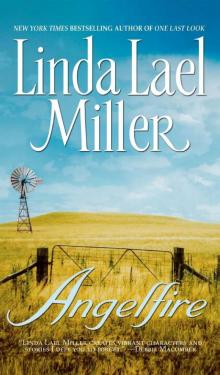 Angelfire
Angelfire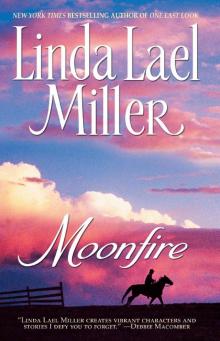 Moonfire
Moonfire The Yankee Widow
The Yankee Widow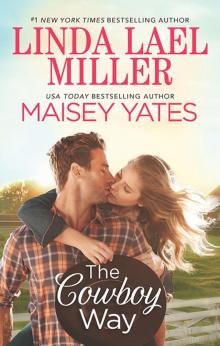 The Cowboy Way
The Cowboy Way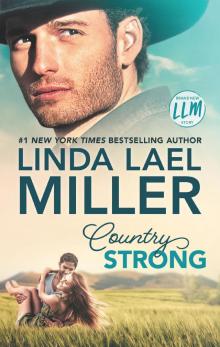 Country Strong--A Novel
Country Strong--A Novel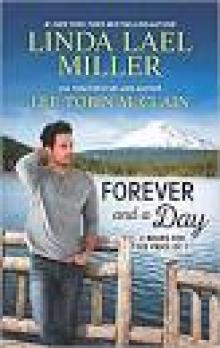 Forever and a Day
Forever and a Day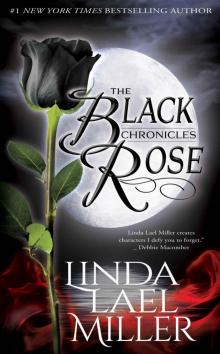 The Black Rose Chronicles
The Black Rose Chronicles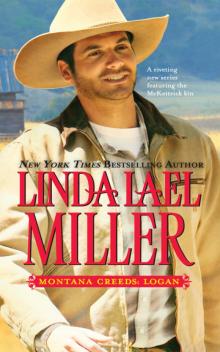 Montana Creeds: Logan
Montana Creeds: Logan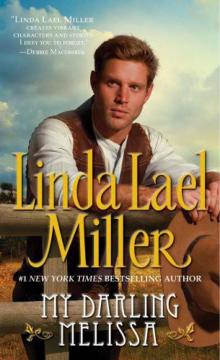 My Darling Melissa
My Darling Melissa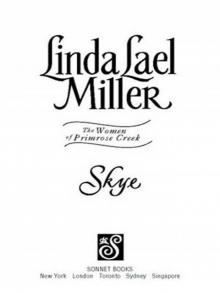 Skye
Skye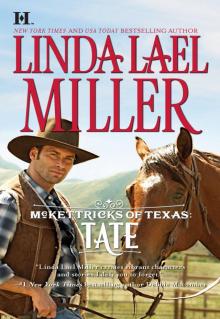 McKettricks of Texas: Tate
McKettricks of Texas: Tate Springwater Seasons
Springwater Seasons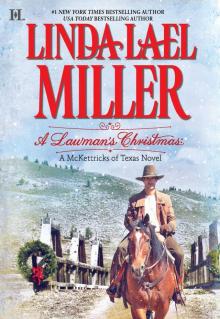 A Lawman's Christmas
A Lawman's Christmas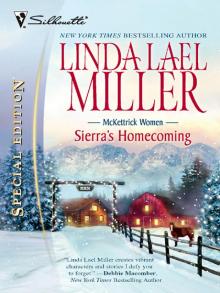 Sierra's Homecoming
Sierra's Homecoming![Parable, Montana [4] Big Sky Summer Read online](http://i1.bookreadfree.com/i/03/22/parable_montana_4_big_sky_summer_preview.jpg) Parable, Montana [4] Big Sky Summer
Parable, Montana [4] Big Sky Summer One Last Weekend
One Last Weekend A Stone Creek Collection, Volume 2
A Stone Creek Collection, Volume 2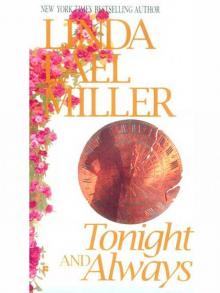 Tonight and Always
Tonight and Always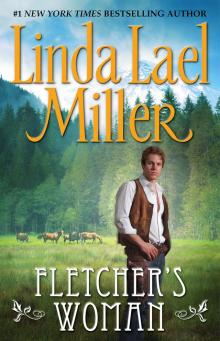 Fletcher's Woman
Fletcher's Woman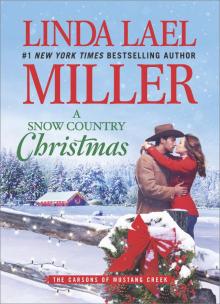 A Snow Country Christmas
A Snow Country Christmas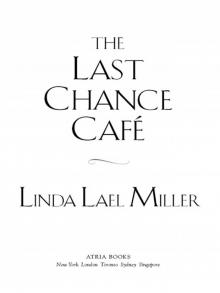 The Last Chance Cafe
The Last Chance Cafe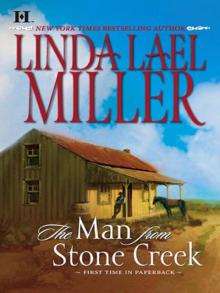 The Man from Stone Creek
The Man from Stone Creek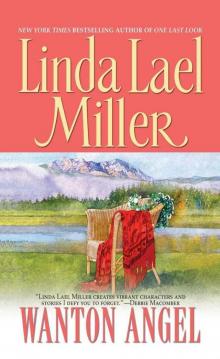 Wanton Angel
Wanton Angel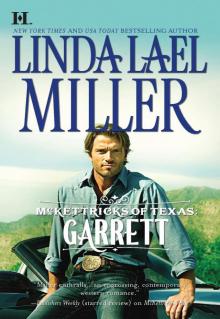 McKettricks of Texas: Garrett
McKettricks of Texas: Garrett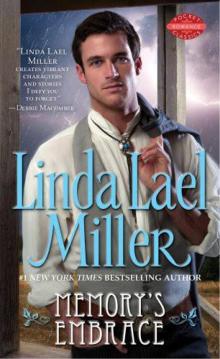 Memory's Embrace
Memory's Embrace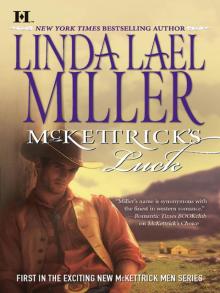 McKettrick's Luck
McKettrick's Luck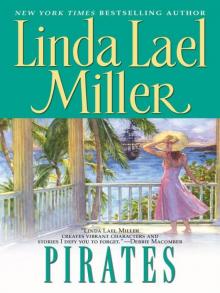 Pirates
Pirates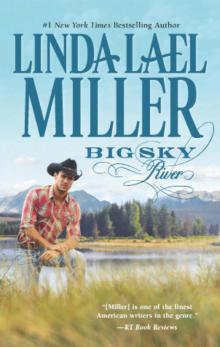 Big Sky River
Big Sky River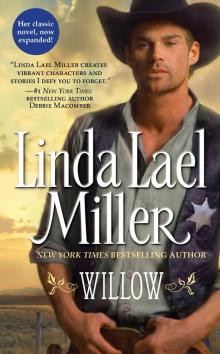 Willow: A Novel (No Series)
Willow: A Novel (No Series)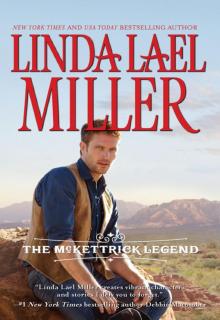 The McKettrick Legend: Sierra's HomecomingThe McKettrick Way (Hqn)
The McKettrick Legend: Sierra's HomecomingThe McKettrick Way (Hqn)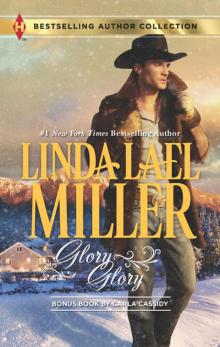 Glory, Glory: Snowbound with the Bodyguard
Glory, Glory: Snowbound with the Bodyguard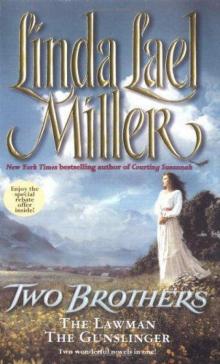 Two Brothers
Two Brothers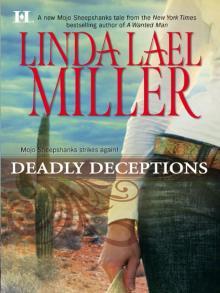 Deadly Deceptions
Deadly Deceptions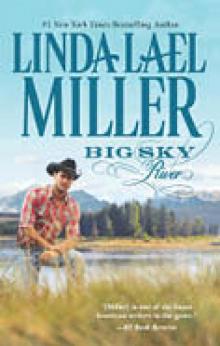 Big Sky Secrets
Big Sky Secrets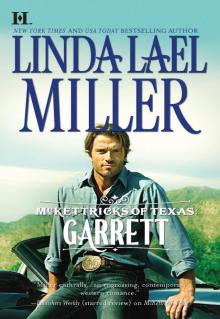 Garrett
Garrett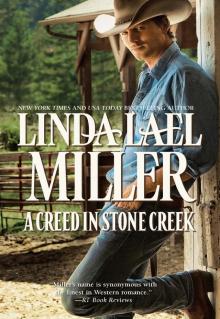 A Creed in Stone Creek
A Creed in Stone Creek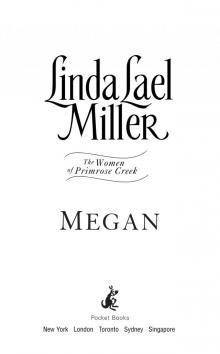 Megan
Megan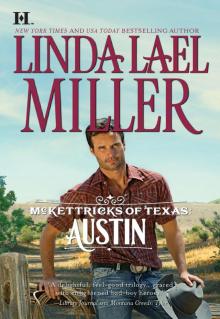 McKettricks of Texas: Austin
McKettricks of Texas: Austin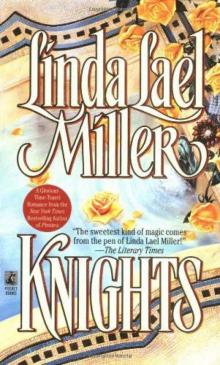 Knights
Knights High Country Bride
High Country Bride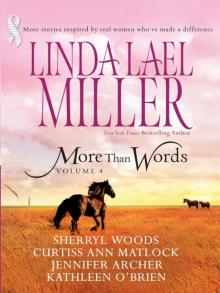 More Than Words Volume 4
More Than Words Volume 4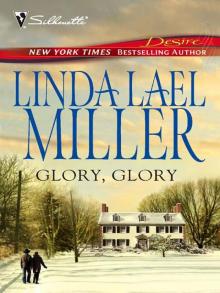 Glory, Glory
Glory, Glory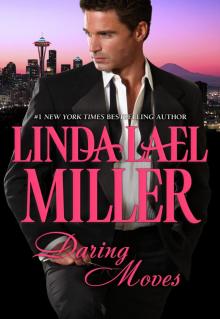 Daring Moves
Daring Moves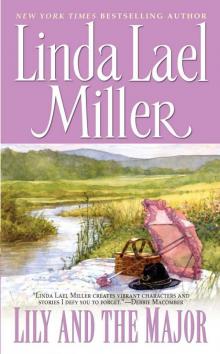 Lily and the Major
Lily and the Major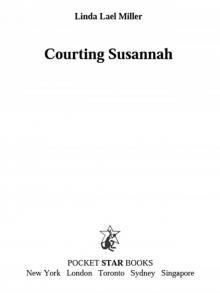 Courting Susannah
Courting Susannah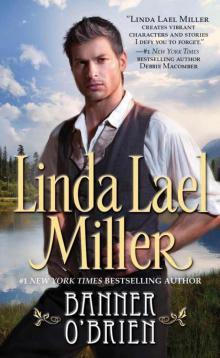 Banner O'Brien
Banner O'Brien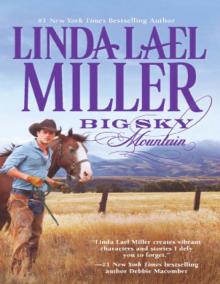 Big Sky Mountain
Big Sky Mountain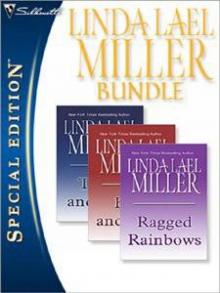 Linda Lael Miller Bundle
Linda Lael Miller Bundle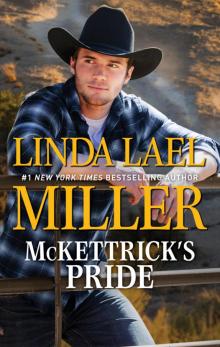 McKettrick's Pride
McKettrick's Pride A Stone Creek Collection Volume 1
A Stone Creek Collection Volume 1 A Wanted Man
A Wanted Man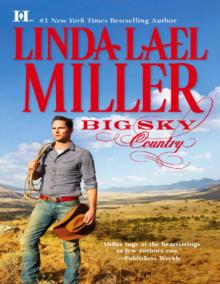 Big Sky Country
Big Sky Country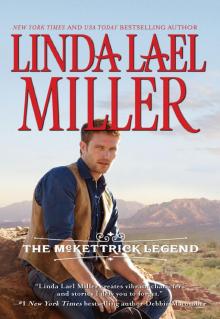 The McKettrick Legend
The McKettrick Legend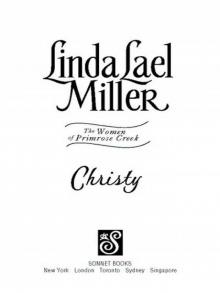 Christy
Christy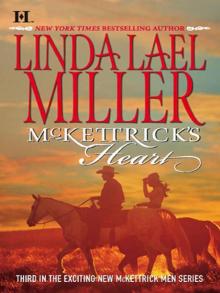 McKettrick's Heart
McKettrick's Heart Resurrection
Resurrection Arizona Heat
Arizona Heat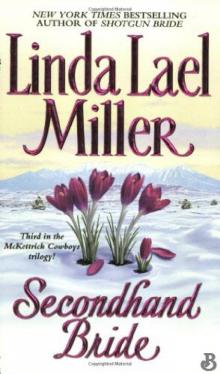 Secondhand Bride
Secondhand Bride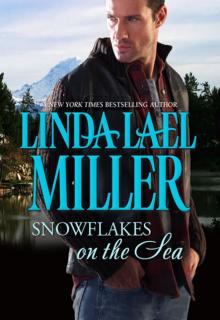 Snowflakes on the Sea
Snowflakes on the Sea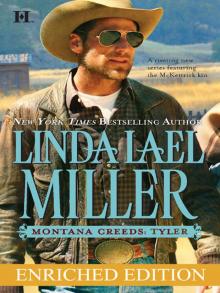 Montana Creeds: Tyler
Montana Creeds: Tyler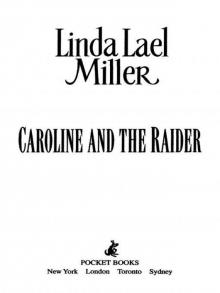 CAROLINE AND THE RAIDER
CAROLINE AND THE RAIDER A Proposal for Christmas: State SecretsThe Five Days of Christmas
A Proposal for Christmas: State SecretsThe Five Days of Christmas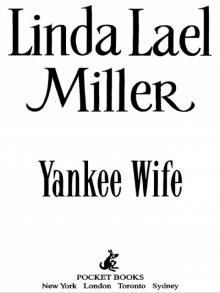 Yankee Wife
Yankee Wife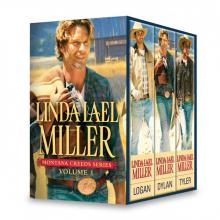 Linda Lael Miller Montana Creeds Series Volume 1: Montana Creeds: LoganMontana Creeds: DylanMontana Creeds: Tyler
Linda Lael Miller Montana Creeds Series Volume 1: Montana Creeds: LoganMontana Creeds: DylanMontana Creeds: Tyler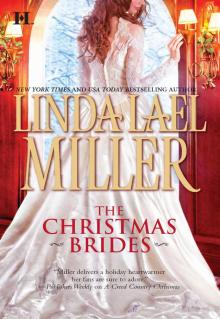 The Christmas Brides
The Christmas Brides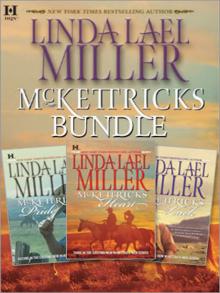 McKettricks Bundle
McKettricks Bundle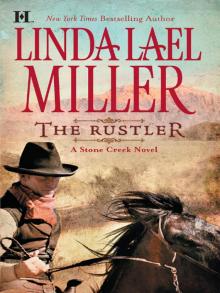 The Rustler
The Rustler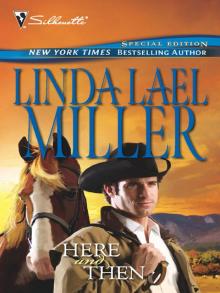 Here and Then
Here and Then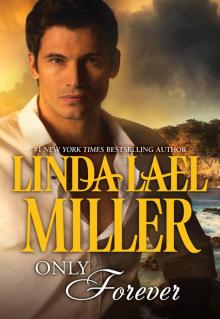 Only Forever
Only Forever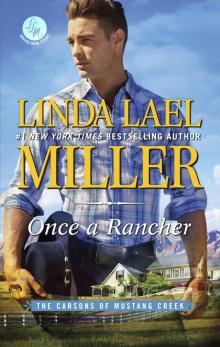 Once a Rancher
Once a Rancher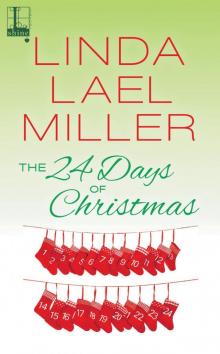 The 24 Days of Christmas
The 24 Days of Christmas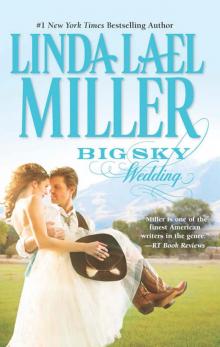 Big Sky Wedding
Big Sky Wedding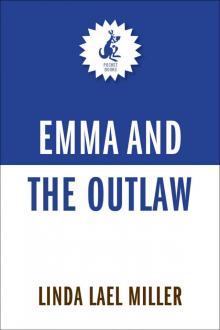 Emma and the Outlaw
Emma and the Outlaw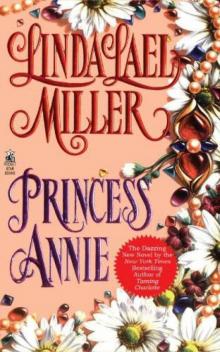 Princess Annie
Princess Annie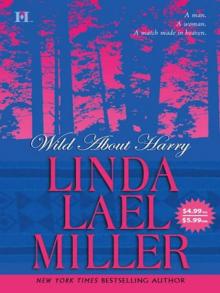 Wild About Harry
Wild About Harry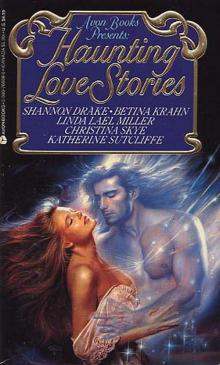 That Other Katherine
That Other Katherine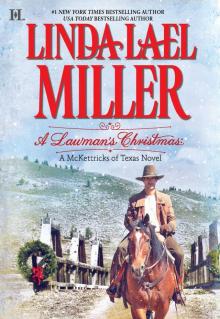 A Lawman's Christmas: A McKettricks of Texas Novel
A Lawman's Christmas: A McKettricks of Texas Novel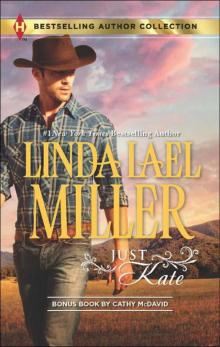 Just Kate: His Only Wife (Bestselling Author Collection)
Just Kate: His Only Wife (Bestselling Author Collection)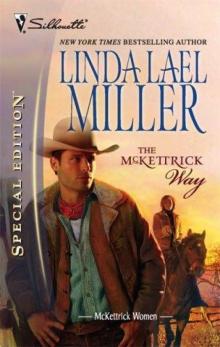 The McKettrick Way
The McKettrick Way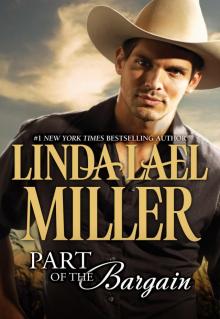 Part of the Bargain
Part of the Bargain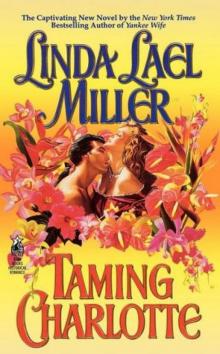 Taming Charlotte
Taming Charlotte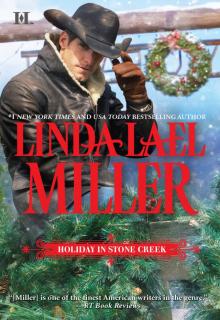 Holiday in Stone Creek
Holiday in Stone Creek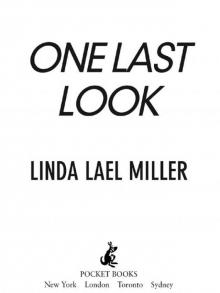 One Last Look
One Last Look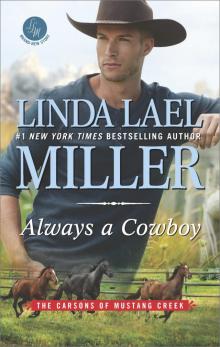 Always a Cowboy
Always a Cowboy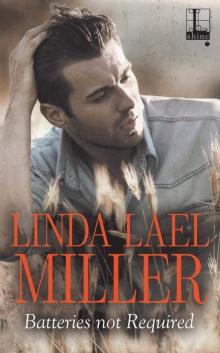 Batteries Not Required
Batteries Not Required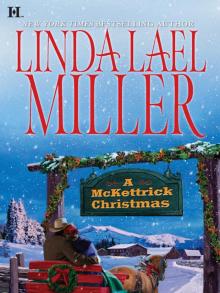 A McKettrick Christmas
A McKettrick Christmas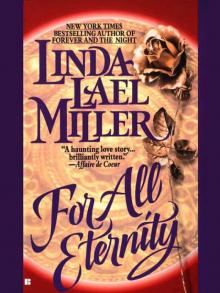 For All Eternity
For All Eternity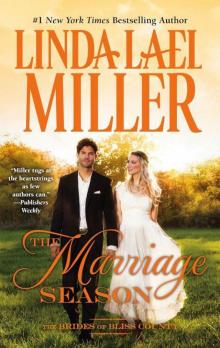 The Marriage Season
The Marriage Season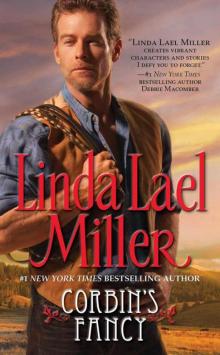 Corbin's Fancy
Corbin's Fancy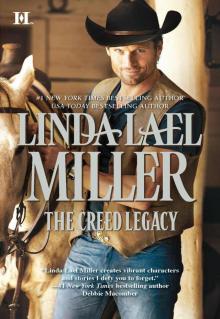 The Creed Legacy
The Creed Legacy Springwater Wedding
Springwater Wedding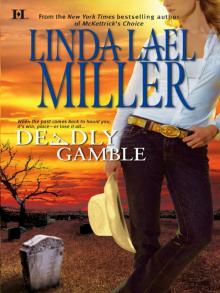 Deadly Gamble
Deadly Gamble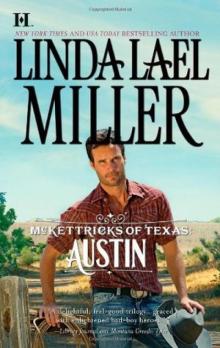 Austin
Austin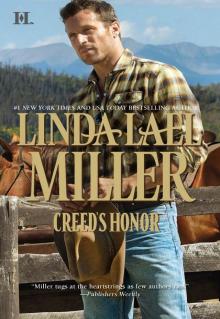 Creed's Honor
Creed's Honor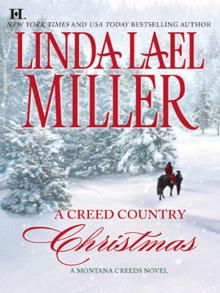 A Creed Country Christmas
A Creed Country Christmas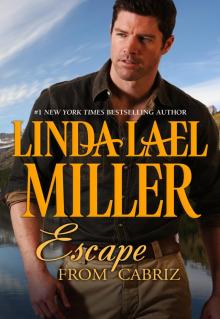 Escape from Cabriz
Escape from Cabriz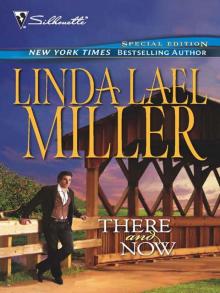 There and Now
There and Now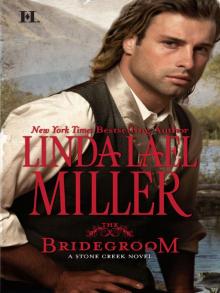 The Bridegroom
The Bridegroom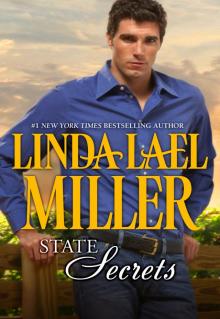 State Secrets
State Secrets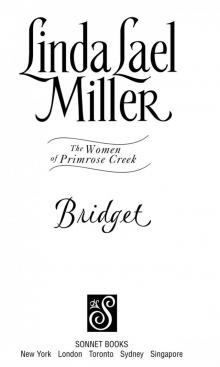 Bridget
Bridget